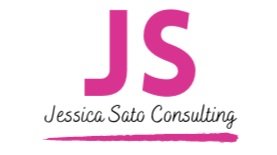Why Egypt?
Over the last few months, you may have heard me talking about Egypt, supporting Egyptian women entrepreneurs, and the importance of purpose and impact in your business. This may seem like it’s coming out of nowhere, but let me tell you a little story.
In 1990, my dad came home and called a family meeting. As we sat on the brown sofa in our tiny living room, he said, “We’re moving to Egypt for a year.”
My brother, sister, and I looked at each other in confusion. “You mean the place from that song?” I asked, doing the classic hand motions to “Walk Like An Egyptian” by The Bangles.
My dad and mom laughed and said, “They don’t walk like that, but yeah.”
Now, I was ten years old and had just made the cheerleading squad, serious business for a fifth grader; it felt like my life was over.
Despite being in a less-than-thrilled funk for weeks, time marched on, and not long after that, we loaded all our things into these big steamer trunks, boarded a plane in Tulsa (my first flight ever), and off we went.
The angry, unhappy version of me slowly gave way to one that felt equal parts nervous, excited, and weirdly accepting. Even now, I’m not sure where that sense of acceptance and openness came from, but perhaps something deep in my soul knew this experience would be utterly life-changing for the good.
We arrived in Cairo in what seemed like the middle of the night, but in truth, I’m really not sure what time it was. From there, we were loaded into two trucks and driven to Ismailia, a city of 1.5 million people on the west bank of The Suez Canal. This would be our home for not one but three and a half years.
Between the ages of 10 and 14, I made beautiful, rich friendships with Egyptians and other expats that still exist to this day, traveled up and down the Nile, over to the Red Sea, across the Sinai Peninsula, into Israel and back again. I learned Arabic and found a deep appreciation for the millennia of history, tradition, and culture that Egypt is known for.
It was during these formative years of my life I gained a deep appreciation for cultures that aren’t my own. I spent countless nights at sleepovers with my friend, Rabaa, and her family. They welcomed me into their home and treated me as if I was one of their own. We cooked together, shopped together, walked the streets laughing and shopping, and best of all, dreaming together. Rabaa and I talked often of traveling, of brilliant careers, and big visions for the future.
When I left Ismailia to return for the start of high school, I was devastated. It’s funny how much I didn’t want to return, especially when I remember how much I didn’t want to go in the first place. Those three and a half years began the critical formation of who I am today.
There’s a saying in Egypt: Once you drink from the Nile you’ll always come back.
Now, I wouldn’t advise drinking water from the Nile unless it’s been heavily purified, but the call to return struck again in college, where I was studying Arabic and Middle Eastern Politics. In Fall of 1999, I created a special study abroad program for myself to make that return possible and spent a semester studying in Cairo.
It was on this trip that I truly realized the power and importance of using your voice and how difficult that can be in places where those freedoms don’t exist. It instilled in me a growing desire to see women grow into and realize their full potential, even when the legal, religious, and cultural odds might be stacked against them. I got to see how entrepreneurship (I don’t even know if I would have called it that back then) can change lives and give women opportunities to make a little bit of money for themselves and create opportunities for their families, especially their girls.
In the intervening years, the lessons and experiences that shaped me in Cairo have resurfaced time and time again in many different ways and in classrooms all over the U.S., Moscow, and Addis Ababa.
And while I’ve wanted to return to Egypt for years, never has the call to return or do something there called as loudly as it is now.
In November, I spoke at a women’s conference about the power of saying what you want to say, and out of nowhere, this vision of building some kind of collaboration initiative with women-owned businesses in Egypt bubbled to the surface.
True to my nature, I immediately dug in to see what this might mean. I spent half the night reading about trends in women’s entrepreneurship in Egypt, the Middle East, and North Africa. That led me down a rabbit hole about women’s entrepreneurship in lesser developed countries, and something I have long believed proved itself time and time again.
Entrepreneurship uniquely affords women opportunities - economically, socially, and intellectually - they may not otherwise have, especially in lesser developed countries.
But immense barriers continue to persist, particularly in three areas:
Women often lack the necessary and powerful combination of technical and vocational skills, education, and work experience that is needed to build successful businesses, especially when access to education and jobs aren’t always available or up for the taking.
Extensive legal, social, cultural, and religious barriers exist, particularly with regard to inheritance, property ownership, and family law. This often means women are required to have male family members intervening on their behalf, and in places where women’s rights are limited, this is especially difficult.
Lack of access to financing and financial services, including basic banking services such as checking and savings accounts, persists.
As I think about the work I have done over the last fifteen years as a leadership development expert, business strategist, and speaking coach, I know how vital access to tools, resources, education, support, and mentorship are to building a successful business.
In the days, weeks, and months to come, you will hear and see me talking about these global barriers, as well as the 17 United Nations Sustainable Development Goals, to a greater extent.
I’m not yet sure what this work with Egyptian women looks like, how to build it - whatever it is - or if anything will come of it, but I know that the call to contribute to something greater than myself is strong, unrelenting, and worth exploring as I continue to serve mission-driven founders here.



